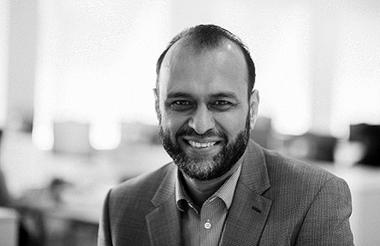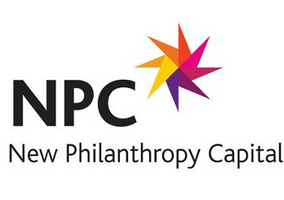Charities need to make a better case for why they need extra funding, but the government should do more to fund innovation, Javed Khan said yesterday.
Khan, chief executive of Barnardo’s, was speaking at the virtual launch of New Philanthropy Capital’s State of the Sector paper, which looks at how the sector needs to respond to the Covid-19 crisis.
“This crisis is a crossroads for the sector. We all have to think again about how we fit into this new world we’re finding ourselves in,” he said.
He urged the sector to make a better argument for why more support is needed, and said: “We have got to accept that charities don’t have a right to exist and we must stop arguing that case and asking for government and others to prop us up.
“That’s not the argument that we should be making. Our purpose is to deliver services to citizens, by and large the vulnerable citizens, and the argument we should be making is that if we don’t do it who will.”
Khan urged charities to make sure that they adapt to new ways of working, and said: “None of us at the other end of this will be the same, nor should we be.”
He added: “Rethinking how we adapt, how we think, how we plan, how we collaborate, how we deliver will be the key challenges that determine whether in future we just survive or once again thrive.”
‘Many of us will not survive’
However, Khan said the government support for charities does not go far enough.
“Government has assumed that the sector can and will continue to help throughout this crisis,” he said.”Many of us are not going to survive as a result of the challenges that we’re facing and it’s important that we talk about that.”
He said the £750m announced by the government for charities “only scratches the surface”, and called on ministers “to keep the whole package under review”.
He warned that charities face a surge in demand as the crisis continues, as more people become vulnerable or suffer due to lockdown.
‘We can’t go backwards’
The NPC report found an 11% drop in confidence in digital technology.
Khan said: “Charities by and large are behind the curve in terms of where we need to be. It really is quite worrying. Digital first, I think, is the way to be now and after lockdown. We can’t go backwards, it’s not an option.”
He said Barnardo’s is using tools like Whatsapp to stay in touch with vulnerable young people. It is also planning to launch a digital family centre.
However, funding for this kind of project is an issue. He said: “Investing in innovation costs money. And money is our big problem all of us at the moment.”
He called on the government to set up an innovation fund for charities, and suggested that “as part of the deal, whatever intellectual property that comes out the other end is available to the whole sector, not just the organisation that developed it, so we avoid duplication and reduce cost”.
‘This could be the catalyst for systems change’
Khan warned: “We can expect the deepest global recession that any of us have experienced.”
He said there is likely to be high youth unemployment, more people in poverty, more young people in care settings and pressure on mental health services.
There could, however, be opportunities, and this could be the “catalyst for systems change” that some have been calling for.
“The problems that we’re going to be dealing with will be too big to solve in any traditional ways,” he said.
He called for a more collaborative relationship between commissioners and charities.
“Government has got to work with charities in a very different way, but charities have got to work differently with each other as well. Move across our individual boundaries, break down our silos.”
Barnardo’s is working with a consortium of over 20 children’s charities on “avoiding duplication and getting maximum bang for our buck”.
Khan said: “We need government to champion and incentivise this way of thinking.”
‘Charities have to wake up and get serious about diversity’
Khan also called on charities to address the lack of representation in their own organisations.
“We as a sector have got to wake up to the challenge of diversity and get really serious about it. We haven’t done historically,” he said.
“The disproportionate impact on BAME communities has exacerbated inequalities and we have got to recognise the role that we play in that in order to have authenticity with our service to those communities.”
Related articles












